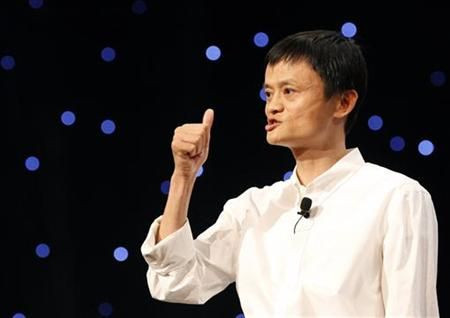Alibaba IPO: Winners And Losers

The IPO of the Chinese e-commerce giant Alibaba on Thursday will create big winners -- and losers. Here's a handy guide.
Winner: Jack Ma
As executive chairman of Alibaba, Jack Ma will be the major beneficiary of the company's IPO. Listing Alibaba on the NYSE will allow Ma not only to “realize the value of his equity, but use the company's partnership structure to maintain his control,” according to Professor Anthea Yan Zhang, of the Jones Graduate School of Business at Rice University. “For them, it is a win on both fronts -- they can raise money on the international capital markets, meanwhile, they do not dilute their control within the company. You cannot find a better deal than that,” she said.
Alibaba's partnership structure consists of a group of 27 managers dubbed the "Alibaba Partnership," who have the power to nominate a majority of board members. Alibaba says the arrangement will preserve its innovative culture in a fast-developing industry and reduce distractions from financial market fluctuations, according to a report from the Associated Press.
Losers: Small U.S. Investors
In the United States, two factors limit the public's participation in the Alibaba IPO. First: As with some other recent big technology IPOs, like Twitter, institutional investors will have easier access to Alibaba shares than retail investors. "It's totally pathetic," said Michael Cohn, chief market strategist at Atlantis Asset Management. "The public's just not allowed to participate. ... The large fund people that manage money for -- say, the Fidelitys, the Vanguards of the world and the hedge funds -- are the ones that get the largest allocation," Cohn told CNBC.
In addition, small U.S. investors' unfamiliarity with Alibaba as product has limited interest in the United States. Steve Quirk, a senior vice president at discount broker TD Ameritrade, told Reuters last week that the number of client inquiries he was fielding about the Alibaba IPO was around a quarter of what it was for Facebook at that stage of the process and about half of what it was for Twitter Inc. "Despite the hoopla around Alibaba, the average investor on the street doesn't know who Alibaba is or what they do," said Lee S. Rawiszer, managing principal at Paradigm Financial Partners in Westport, Connecticut, told the Wall Street Journal.
Winners: Yahoo and Softbank
While Alibaba stock is the talk of the market, other tech companies already own significant portions of the company, having snapped up preferred shares that were made available before the company began public trading. Those companies and stand to make a great deal of money from the coming IPO. The two largest examples of this are Yahoo and Softbank, which own 22 and 37 percent of the company, respectively. According to Marketwatch, Yahoo's stake in Alibaba could be worth up to $36 billion, which when compared to the company's valuation ($41 per share; the company is valued at $41 billion) is an extremely significant figure.
Softbank, the parent company of the Sprint corporation, is the largest external shareholder in Alibaba, and the company's stake will likely be worth over $52 billion, the Wall Street Journal reports.
Loser: Hong Kong
As a long-established Chinese financial center, Hong Kong might have seemed a more obvious venue than New York for Alibaba to launch its first public share offering -- but the quasi-autonomous Chinese territory lost out to New York because Hong Kong authorities refused to make an exception for the company's partnership system (in which a small group of company insiders nominates the majority of the board of directors without owning a controlling stake), according to a report from Stockhouse.
Alibaba chief Ma told a roadshow meeting of potential investors in Hong Kong, “Some people have said that Hong Kong lost the opportunity to have Alibaba. I personally feel that Alibaba missed out on Hong Kong," he said.
"I believe, I understand and I especially support the fact that Hong Kong should not change its principle for one company or one enterprise,” Ma said. “But Hong Kong must ... change for its own future because this world is in the midst of change.”
Hong Kong is now reportedly rethinking its market rules in the wake of losing what is being billed as the biggest IPO in history.
Winners: China's Political Elites
While China's economy has liberalized greatly in the last two decades, connections to the governing Communist Party are still valuable for investors and businesspeople in the region. In January this year, Alibaba agreed to acquire Citic 21CN, a telemarketing and pharmaceutical data company which, according to the New York Times, lists Chen Xiaoying, the wife of a former Chinese general, as its executive vice chairwoman. The stock price of Citic 21CN soared after Alibaba said it would buy a controlling stake, adding about $500 million to the value of Chen Xiaoying’s shares. "Ma's been allowed to build a near-monopoly online only because the regime has allowed him to do so," said an op-ed on Bloomberg View by William Pesek. "When Ma describes Alibaba's priorities as 'customers first, employees second, and investors third,' one can't help but assume the first group includes his party benefactors in Beijing.”
Losers: China's Retail Investors
Chinese investors are very limited in the extent to which they can participate in the Alibaba IPO, due to restrictions imposed by the Chinese government on the purchase of foreign equities. Zhou Nushi, a retired factory worker in Shanghai told the Financial Post. “I’m a little confused about why you can’t invest in a Chinese company if you’re Chinese.” Institutional investors and the ultra-rich however, can take advantage of the IPO through alternate avenues. “For institutional investors, they have some ways to get around the government's currency controls. Some funds have already been prepared for the Alibaba IPO for a long time. “Even though those opportunities are available, they are only for the ultra-wealthy Chinese, not the ordinary Chinese investor,” said Professor Anthea Yan Zhang.
© Copyright IBTimes 2024. All rights reserved.




















